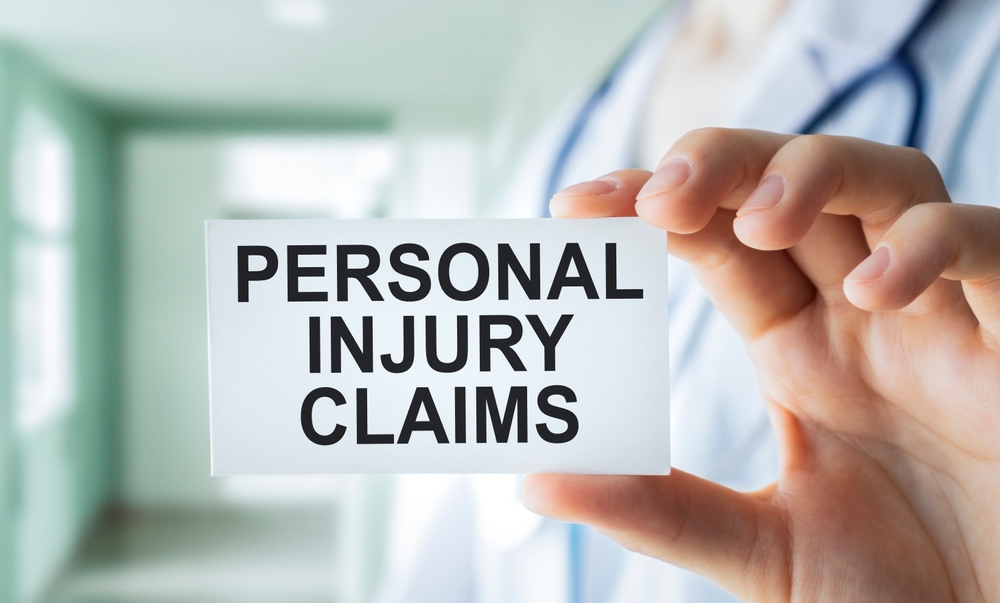If you are recovering from a serious injury, the thought of a long, dramatic courtroom battle can be incredibly daunting. You are already managing medical care, financial stress, and the emotional toll of your accident.
We often hear the question of how many personal injury claims go to court, and the answer is usually a source of relief for our clients. The reality shown on television, with our White Plains personal injury lawyers shouting in a packed courtroom, is not the typical path for an injury claim.
Most cases are resolved long before a trial ever begins. The primary goal is almost always to secure fair compensation through a negotiated agreement, not through a public legal fight.
- Most personal injury claims are resolved through a process called settlement.
- Filing a lawsuit is a strategic step but does not automatically mean your case will go to trial.
- Understanding the different stages of a claim can help you feel more in control of the process.
Schedule a Free Case Evaluation
The Surprising Answer: Why Most Claims Settle Before a Trial
Statistics consistently show that well over 95% of personal injury cases never reach a trial verdict. Instead, they are resolved through a settlement.

A settlement is a formal agreement in which the injured person agrees to accept money from the at-fault party (usually their insurance company) in exchange for dropping the lawsuit.
There are very good reasons why both sides often prefer to settle. The court systems in places like Brooklyn and Queens are hectic, and going to trial is a gamble for everyone involved.
A settlement offers a way to resolve the matter with more certainty and less risk.
- Certainty and Control: When you settle, you know exactly how much money you will receive. A jury verdict is unpredictable; it could be more than the settlement offer, but it could also be much less or nothing.
- Faster Resolution: The legal process for a trial can take years to complete. A settlement can be reached much more quickly, allowing you to get the resources you need to move forward with your life sooner.
- Privacy and Reduced Stress: Trials are public record. A settlement is a private agreement. This allows you to avoid the intense stress and public scrutiny of testifying in court and having the details of your injury and recovery discussed openly.
The Personal Injury Claim Timeline
Before a lawsuit is even considered, a series of mandatory steps occur. In this initial phase, a strong case is built and many claims are successfully resolved. This entire process demonstrates your case's strength to the insurance company to encourage a fair settlement offer.
- Investigation and Evidence Gathering: This is the foundational stage. It involves collecting all relevant documents, such as police reports, medical records from your doctors, and photos of the accident scene.
- The Demand Letter: Once you have a clear picture of your total losses, a formal demand letter is sent to the insurance company. This letter is not just a bill; it is a detailed legal document that lays out the facts of the accident, establishes why their client is at fault, details your injuries and damages, and demands a specific amount for settlement.
- Negotiation: After receiving the demand, the insurance company will respond, usually with a much lower counteroffer. An experienced legal team handles this back-and-forth process, presenting arguments and evidence to push the insurance company to increase its offer to a fair and just amount.
When a Lawsuit Becomes Necessary: Entering Litigation
So, if most cases settle, why is a lawsuit ever filed? A lawsuit is often filed when negotiations stall or when it becomes clear that the insurance company is not taking the claim seriously.
Filing a lawsuit does not mean your case will go to trial. In fact, it is often the step needed to force the insurance company to negotiate in good faith. This formal step is known as "litigation," which is the legal term for taking a claim through the court system.
Some common reasons for filing a lawsuit include:
- Unfairly Low Offers: The insurance company refuses to offer an amount that comes close to covering your medical bills, lost wages, and suffering.
- Disputes Over Fault: The other party denies they were responsible for the accident, and a lawsuit is needed to legally establish their liability.
- Complex Cases: In cases involving very serious or catastrophic injuries, like those from a construction accident on a high-rise site in Manhattan, the financial stakes are very high, and litigation is often a necessary part of the process.
The Discovery Phase: Where Most Litigated Claims Settle
Even after a lawsuit is filed, a trial is still not the most likely outcome. The lawsuit kicks off a critical stage called "discovery." Discovery is the formal, court-supervised process where both sides are required to share all the information and evidence they have about the case.
It ensures there are no surprises at trial. This is often where the real progress toward a settlement happens. As the insurance company is forced to see the full strength of your evidence, they become more motivated to settle.
- Interrogatories: These are written questions that each side must answer under oath.
- Depositions: This is an opportunity for the lawyers to ask questions of witnesses and parties in person, under oath, in an office setting rather than a courtroom. The answers are recorded by a court reporter.
- Requests for Documents: Each side can formally request key documents from the other, such as internal safety reports from a trucking company or a property owner's maintenance logs.
The Small Percentage: How Personal Injury Claims Go to Court
While it is rare, a small number of personal injury claims do go to court. This usually happens when the two sides are so far apart on the value of the claim or the question of fault that no agreement can be reached. A trial becomes the only remaining path to justice.
Why a Personal Injury Claim Might Go to Court
Deciding to take a case to trial is a significant decision made for very specific reasons. It is never done lightly.
- A Matter of Principle: Sometimes, an insurance company's offer is so fundamentally unfair that accepting it would be an injustice. In these situations, a trial may be the only way to hold them accountable for the true extent of the harm their client caused.
- A Denial of Responsibility: If the at-fault party completely denies any responsibility and the evidence is strong, a trial may be necessary to have a jury officially determine who was at fault.
- No Room for Compromise: In some instances, one or both parties are simply unwilling to compromise, leaving the court as the only place to resolve the dispute.
Is a Settlement Offer Right for You?

An insurance company has made a settlement offer. This moment can feel like a huge relief, but it also brings a heavy question: is it enough? Accepting an offer is one of the most critical decisions you will make.
This is where the abstract question of how many personal injury claims go to court becomes intensely personal. It is not just about the numbers on a page but about what that money means for your future, your security, and your ability to move forward.
The single biggest advantage of a settlement is certainty. You know the exact amount of money you will receive and roughly when you will receive it. This provides a guaranteed outcome that can pay for your immediate and future medical needs, cover your lost income, and give you a foundation to rebuild your life.
A trial is full of unknowns. Even with the strongest case, there is no guarantee of victory. A jury is made up of ordinary people from the community, and their decision can be unpredictable.
Going to trial also requires a significant investment of your time and emotional energy. The process can take many more months or even years, and it requires you to publicly relive the details of your accident and injuries.
This is where having a trusted legal advisor is so important. Our job is not to tell you what to do. It is to give you a clear, honest picture of your options so you can make a decision that feels right for you and your family.
We help you weigh the guaranteed amount in the settlement offer against the potential risks and rewards of a trial. This conversation involves a detailed analysis of all the evidence gathered during discovery, a realistic assessment of how a jury in your specific county might view the case, and an honest discussion about your personal comfort with the risks involved.
Your attorney will help you explore a few critical questions to guide your decision:
- Does this offer fully account for my known future needs, such as ongoing medical treatments, therapy, or loss of earning ability?
- Am I emotionally and physically prepared for the demands and the uncertain timeline of a trial?
- How does this guaranteed offer compare to the realistic risks of getting less, or even nothing, from a jury if we go to court?
Ultimately, you are in control. You are the only one who can decide what is best for your future. Our goal is to ensure that when you make your choice, you do so confidently, knowing you have considered every angle with the guidance of an experienced team with your best interests at heart.
Charting a Course for Your Future
The journey of a personal injury claim is rarely a straight line. While the vast majority find resolution through a settlement, the path to that settlement often involves preparing as if you are going to trial.

It is that thorough preparation and willingness to fight in court that convinces insurance companies to offer fair compensation. The ultimate goal is not to have your day in court; it is to secure the resources you need to rebuild your life.
At Queller Fisher, we understand the stress and uncertainty you are facing. Our firm is built on providing focused, personal attention to each client. We are not a high-volume practice; we are a team of dedicated attorneys with hundreds of years of combined experience concentrating on complex injury cases.
This approach ensures that every case gets the rigorous preparation needed to achieve a successful outcome, whether at the negotiating table or in the courtroom. We are available 24/7 to listen to your story. We offer free consultations by phone, video, or in person, and we can come to you if you cannot travel.
Contact us in New York City at (212) 406-1700 or in the White Plains at (718) 892-0400. Our team provides services in Spanish and Mandarin.
- We will provide an honest, realistic assessment of your legal options.
- Our team prepares every case for trial, which puts our clients in the strongest possible negotiating position.
- You make the final decision on any settlement offer, armed with our experienced guidance.
Frequently Asked Questions About Personal Injury Claims and Court
If my case settles, do I have to go to court at all?
In most settlement scenarios, you will not have to step foot in a courtroom. However, it is very common that you will need to participate in parts of the litigation process before the settlement is reached. This almost always includes giving a deposition, which is sworn testimony given in a conference room, not in front of a judge.
Who decides whether to accept a settlement offer or go to trial?
The final decision is always yours. A lawyer's job is to provide you with all the information, legal analysis, and professional guidance you need to make an informed choice. We will advise you on the strengths and weaknesses of your case and the risks of a trial, but the ultimate power to accept or reject an offer rests with you, the client.
Does filing a lawsuit mean the insurance company is upset with me?
Not at all. Filing a lawsuit is a standard, unemotional business procedure in the legal world. Insurance companies and their lawyers see it as a normal and expected step in the process for serious claims. It is a tool used to move your claim forward when informal negotiations are not working.